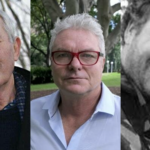Secrecy Is Lifted, But the Government Continues Its Punitive Prosecution of Richard Boyle

Australian Taxation Office whistleblower Richard Boyle is set to go before the Adelaide District Court to continue his public interest disclosure (PID) defence proceedings on 4 October 2022. And despite the Commonwealth, yet again, attempting to hide evidence of corruption, an applied suppression order has been lifted.
Boyle has been hung out to dry since he went public in 2018 with claims, supported by evidence and vindicated by subsequent inquiries, that in 2017, the tax office ordered employees to dip into citizens’ bank accounts across the board to recover outstanding debts without their knowledge.
The then ATO officer followed the statutory procedures that public service employees must take in exposing corruption, which are set out in the Public Interest Disclosure Act 2013 (Cth): legislation drafted by attorney general Mark Dreyfus during his earlier stint in the role.
The AG asserted these laws need an overhaul prior to his second appointment to chief lawmaker, as did the 2016 report of the Moss inquiry into the PID Act. But Dreyfus seems quite comfortable to first observe whether Boyle’s case confirms the laws are inadequate in protecting whistleblowers.
Indeed, Boyle’s hearing is the first time the PID defence has been applied and, if successful, it would ward off the following prosecution.
While the broader context is that the ex-ATO officer is one amongst a number of whistleblowers, whom the government has been punishing for speaking out.
The crime of truth-telling
“The prosecution of Richard Boyle is unjust and not in the public interest,” said lawyer Kieran Pender. “Boyle blew the whistle on government wrongdoing, misconduct and unethical behaviour in the tax office: a government agency with significant powers that must be held accountable.”
“Boyle tried to do the right thing, he blew the whistle internally first, then to the tax office watchdog, and only then did he go public,” the Human Rights Law Centre senior lawyer told Sydney Criminal Lawyers.
Prior to going to the press, Boyle raised the issue with his ATO superiors, outlining in an internal complaint that management had ordered that standard garnishee notices, usually reserved for habitual tax offenders, be applied to all, and employees were pressed to finalise cases in this way.
Boyle claimed this end of financial year revenue raising push breached the Australian Public Service code of conduct, contained in section 13 of the Public Service Act 1999 (Cth). And although he’s being pursued for the manner in which he exposed it, his attention did see the ATO halt the practice.
“He seemingly has a strong case for immunity under the PID Act, which permits whistleblowers to go public in certain circumstances,” Pender added. “But the fact he’s being prosecuted in the first place has a chilling effect on other public sector whistleblowers.”
Under failed laws
For his troubles, in January 2019, the Commonwealth Director of Public Prosecutions slapped Boyle with 66 charges, which carried a combined maximum of 161 years behind bars and included alleged offences committed in the pursuit of evidence to prove his complaint.
In mid-2020, the CDPP determined to drop the number of charges down to 24, which, if the argument put by Boyle’s legal team during the defence hearing is successful, will be withdrawn.
However, the prosecution has been pulling out all the stops, including calling for the suppression of evidence.
“A number of legal uncertainties linger over the Boyle case, including around the nature of the whistleblowing defence hearing, and the level of protection provided by the PID Act,” Pender advised. “It’s unclear how these issues will play out.”
The subsequent trial date following a ruling against Boyle is set for October next year. But with likely interlocutory appeals while the case proceeds, as well as further potential challenges to the outcome, Pender considers the case could be drawn out for much longer.
“Like the Bernard Collaery saga, which dragged on for four years, it’s unlikely this case will be over anytime soon,” the HRLC senior lawyer continued, “unless the Commonwealth DPP or the attorney general do the right thing and drop the case.”
Burying the crimes
Whilst in office, former attorney general Christian Porter launched four high-profile whistleblower prosecutions – former ASIS officer Witness K, ACT barrister Bernard Collaery, ex-ADF lawyer David McBride and Boyle – all of which had a hint of seeking reprisals for exposing government crimes.
And in launching these cases, the controversial AG applied never-before-used secrecy measures to K and Collaery’s matters, as well as similar laws to hide the truth in McBride’s prosecution, and this pattern continued when the prosecutor sought a suppression order for Boyle’s case in July.
However, last Friday, SA District Court Judge Liesl Kudelka revoked the suppression order, which had subsequently been applied to the Boyle case.
“Open justice is a fundamental democratic principle,” said Pender in relation to the “alarming trend” in government attempting to suppress whistleblower evidence. “It was welcome that the trial judge largely rejected the CDPP’s bid for secrecy given the public interest in the Boyle case.”
“Protected, not punished”
According to Pender, even if Boyle’s PID defence is successful, “he will have paid a heavy price” both financially and psychologically “for doing the right thing”. And this has also been the case for Witness K, Bernard Collaery and David McBride, who continues to exist in a legal limbo.
The nation welcomed Dreyfus’ dropping of the Collaery prosecution in July. And the chief lawmaker has the same power, under section 71 of the Judiciary Act 1903 (Cth), to end the persecution of Richard Boyle and David McBride for revealing uncomfortable truths.
Dreyfus has also determined to overhaul the PID Act, as he admits the laws are inadequate. In fact, he’s said he was aware they would need further attention on enactment.
So, there’s something rather sinister to have Boyle, who’s facing decades in prison, having to argue his defence under flawed legislation.
As for Pender, he maintains there’s no public interest in pursuing the cases against both Boyle and McBride, but rather underscores they’re “unjust and undemocratic”.
“Rather than prosecuting whistleblowers, the federal government should focus on urgently reforming the PID Act and establishing a whistleblower protections authority to ensure whistleblowing laws are effectively implemented,” the human rights lawyer said in conclusion.
“Whistleblowers make Australia a better place. They should be protected, not punished.”







